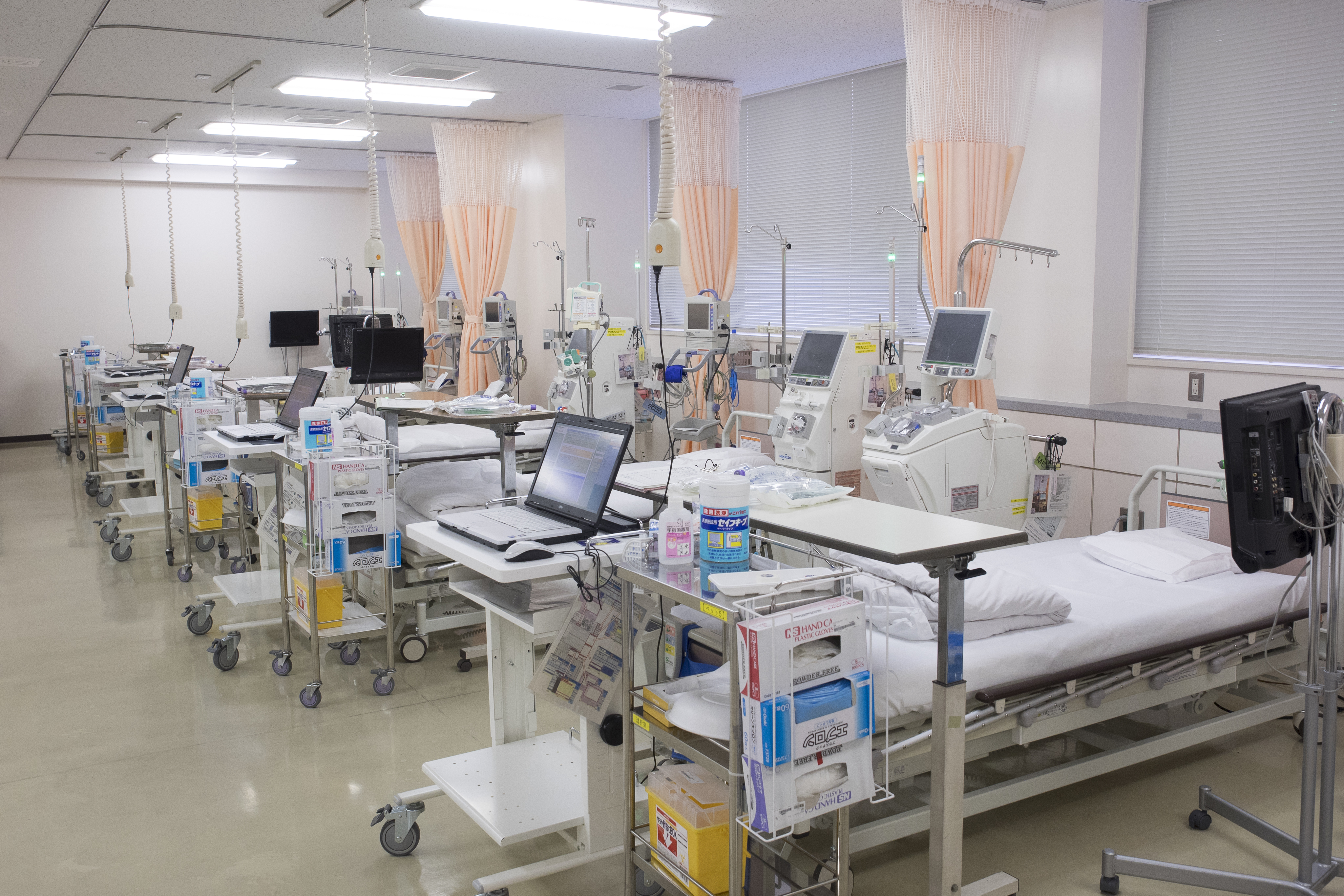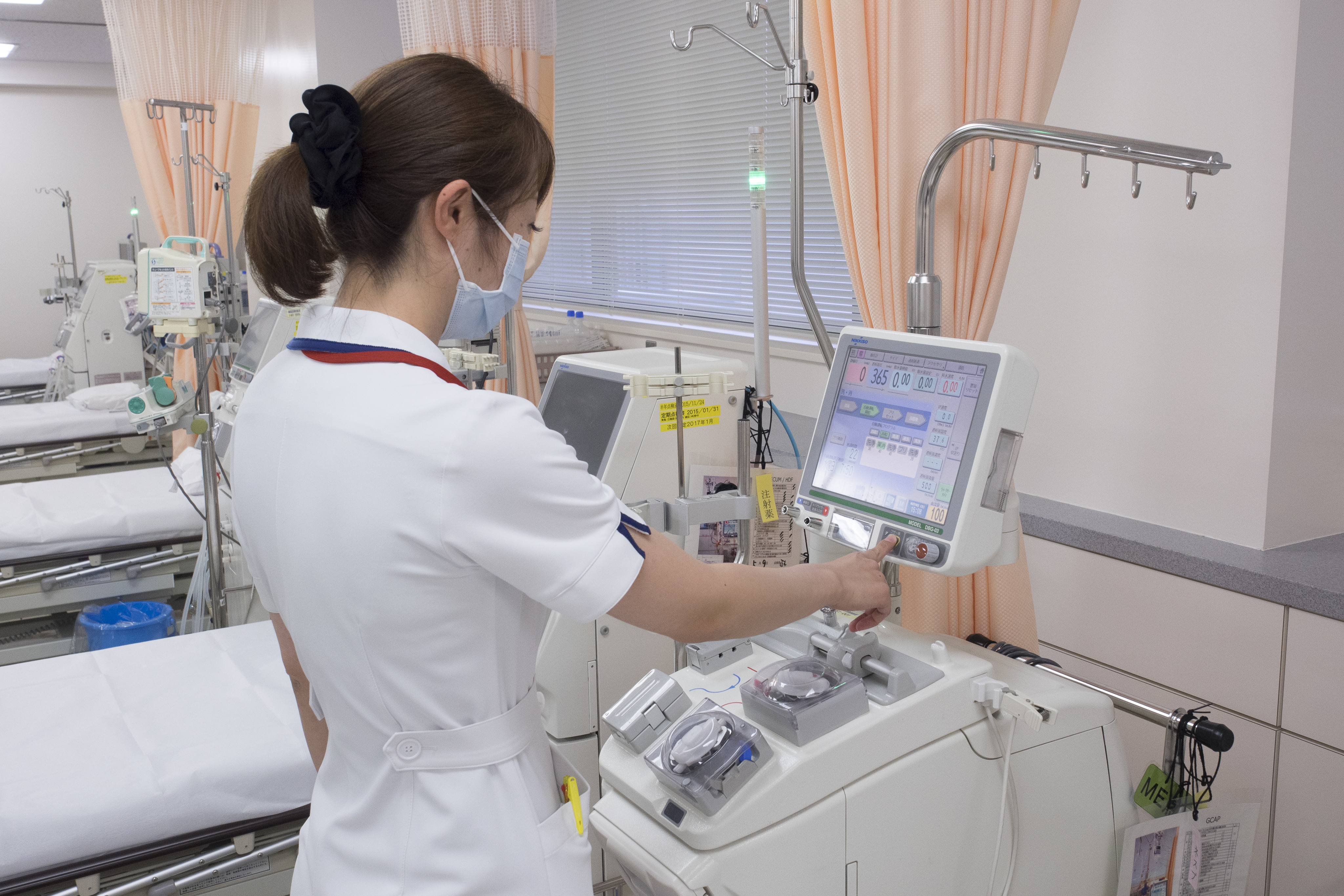Department of Blood Purification
Director:KATO, Noritoshi(Lecturer)
Undertaking blood purification therapy that responds to the increasing demand
The department takes charge of the hospital’s blood purification therapy in collaboration with the ICU.
Medical Care System
There are 13 beds in the department. The department is open on Monday, Wednesday, and Friday for a morning and afternoon shift, and Tuesday, Thursday and Saturday for a morning shift, which are handled by doctors, clinical engineering technologists and nurses. Various blood purification therapies such as PE, DFPP, L/G-CAP in addition to HD/HDF are also performed.
Target Diseases
Blood purification therapy is administered for diseases such as hemodialysis for patients with end-stage kidney disease, surgical perioperative dialysis of patients on maintenance hemodialysis, or acute kidney injury or hepatic failure due to medicine, an operation, auto immune disease or sepsis, inflammatory Bowel disease, and diseases of the nervous system.
Features
Our hospital performs highly-specialized and advanced medical services protocol for ICU, cardiac surgery, organ transplantation, bone marrow transplant, cancer chemotherapy, severe infections, multi-organ failure, cardiovascular system, as well as for malignant diseases and acute blood purification for severe and multiple complications. Peritoneal dialysis and Hemodialysis combined therapy. Concentrated Ascites Reinfusion Therapy (CART).
Clinical Results
Total number of cases: 3,455; hemodialysis 3,349 sessions. Total number of newly inducted dialysis patients: 88 (all numbers come from data in 2023).
Other Undertakings
The department started Tuesday, Thursday and Saturday shifts in May 2009 to meet the increasing demand. In October 2009, the department was renamed Department of Blood Purification. The Department is renovated and increased bed number to 13 in October, 2018. In April 2022, nurses from surgical intensive care unit joined our department to play a part in highly advanced medical care.







